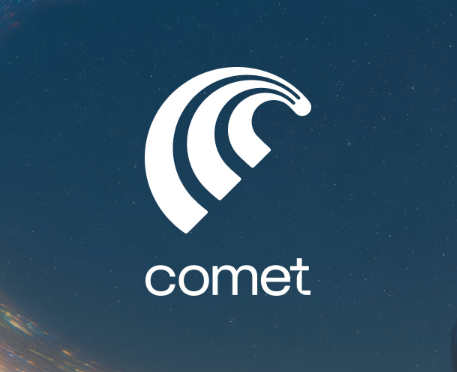Atlas, Comet, and the Agentic Browser Era: What It Means for the Future of B2B Marketing

The internet is changing, and this time, it’s thinking for itself.
ChatGPT Atlas from OpenAI has arrived, a Mac-only preview that embeds ChatGPT directly into your browsing experience. It introduces “Agent mode”, which allows ChatGPT to act within web pages, complete tasks, and even remember what you’ve been looking at (with your permission, of course).
Meanwhile, Comet from Perplexity AI is making waves as a free, AI-first browser designed to “travel the web” alongside you. Together, these launches mark the dawn of a new digital era where browsing becomes doing and AI assistants start to take on the heavy lifting of online research.
It might take a few years before these tools become mainstream, but their arrival signals a clear shift in how B2B buyers will search, learn, and make purchasing decisions in the future.
From “researching” to “delegating”: the new shape of the customer journey
To see what this could look like in practice, let’s fast-forward a little.
The shortlist that writes itself
Maya, an Operations Director at a logistics firm, asks her AI assistant:
“Find an ISO-27001-compliant survey platform that integrates with HubSpot, compare pricing tiers, and draft an RFP.”
Her AI browser scans vendor sites, case studies, and reviews, then compiles a shortlist of three options complete with compliance notes and pricing summaries.
Maya skims the report, forwards it to procurement, and moves on with her day.
Your beautifully designed web pages? The AI read them. Whether they made the cut depended on how clearly they were structured, how credible they appeared, and how easy they were to extract key details from.
The invisible PPC impression
At FinTech Co, a buyer gives their agent a brief:
“Renew our identity-verification provider. Prioritise UK compliance, reduce false positives by 15%, and keep costs flat.”
The agent explores options across the web and filters out ads that don’t meet those requirements.
This isn’t science fiction. It’s the early vision for AI-targeted advertising, where agents, not humans, decide which products deserve attention.
Procurement to purchase, end to end
An enterprise buyer enables Agent mode in Atlas to handle a contract renewal workflow, comparing MSA clauses, opening support tickets, and preparing approval documentation.
The human still makes the final call, but the routine work? The AI takes care of it.
Why this matters for B2B marketing
It’s still early days. We’re not predicting that agents will replace human browsing overnight, or that SEO and PPC will vanish in a puff of automation.
However, AI browsers will gradually reshape how digital discovery happens. And that’s something every B2B marketing professional should be preparing for now.
What this means for SEO, PPC, and B2B customer journeys
1) SEO will evolve from “ranking” to “earning trust”
As AI browsers become intermediaries between your website and your buyer, credibility, structure, and clarity will matter more than ever.
Agentic browsers will prefer content that is:
-
Structured and easy for machines to read
-
Credible and backed by evidence
-
Helpful and answers the full question
Think of it as optimising for understanding. And while you don’t need to rewrite your whole site tomorrow, gradually building structure into your content now will future-proof your visibility as AI browsing grows.
2) PPC will start to adapt for a new kind of audience
When agents do the searching, comparing, and filtering, PPC ads will need to become smarter and more transparent.
We may eventually see ads that target task intents such as “Find SOC 2 compliant HR software” rather than simple keywords, or structured offers that agents can verify programmatically before showing to a user.
This shift will take time. But starting to embed clarity and proof points in your ad copy, such as certifications, service levels, terms, conditions and pricing logic, will set you up for success when that time comes.
3) The B2B journey will compress, but clarity will win
Today’s buyers already complete up to 70% of their research before they ever talk to sales. In an agentic future, that number could be closer to 100%.
So rather than panicking, focus on making your content easier to evaluate:
-
Keep your value propositions crisp and factual
-
Share data, results, and case studies in ways that both humans and AI can digest
-
Use structured formats such as comparison tables, ROI models, and short executive summaries that make your expertise easy to lift and summarise
That way, whether it’s a person or an AI doing the reading, your message still shines through.
Looking ahead: the next evolution, not an overnight revolution
Agentic browsing isn’t something that will redefine marketing overnight, but it will slowly change the rules of discovery, evaluation, and decision-making.
Over the next few years, we’re likely to see:
-
Gradual adoption of AI browsers, beginning with tech-savvy users and scaling into B2B contexts
-
SEO and PPC strategies evolving to prioritise transparency and structure
-
Agent-targeted ads emerging, focused more on facts and specifications than slogans
-
Procurement journeys shortening, with AI preparing shortlists before sales ever gets involved
-
Content marketing becoming more critical than ever, as quality, clarity, and authenticity remain the foundations of trust
So, what should B2B marketers do now?
This evolution will unfold over time, but laying the groundwork now will help you stay a few steps ahead.
-
Build trust signals into your content, such as clear evidence, transparent pricing, and visible accreditations
-
Start adding structure, like FAQ or product schema, to help AI systems interpret your pages accurately
- Focus on great content marketing, the kind that informs, inspires, and genuinely helps your audience make better decisions
These aren’t short-term tactics. They’re sustainable best practices that will ensure your brand continues to shine, whether your next visitor is a person or an AI.
The Angelfish perspective
At Angelfish, we’ve always believed that the most effective marketing starts with understanding people: their goals, challenges, and how they make decisions. As AI begins to play a bigger role in that process, the B2B brands that thrive will be those that combine human creativity with digital intelligence.
If you’d like to explore how to adapt your content marketing, SEO, and PPC strategy for this next wave of AI-driven discovery, we’re here to help.
Book your free consultation and let’s build a content marketing strategy designed for the future.

About the Author: Richard Stephens
AuthorRichard is the director and co–founder of Angelfish Marketing, a digital marketing agency specialising in inbound marketing for B2B SME’s.
Connect on LinkedInReady to Unlock AI SEO for Your Business?
AI SEO isn’t coming — it’s already here. Capture high-intent traffic and build sustainable pipeline growth.
Get Your Free Audit

